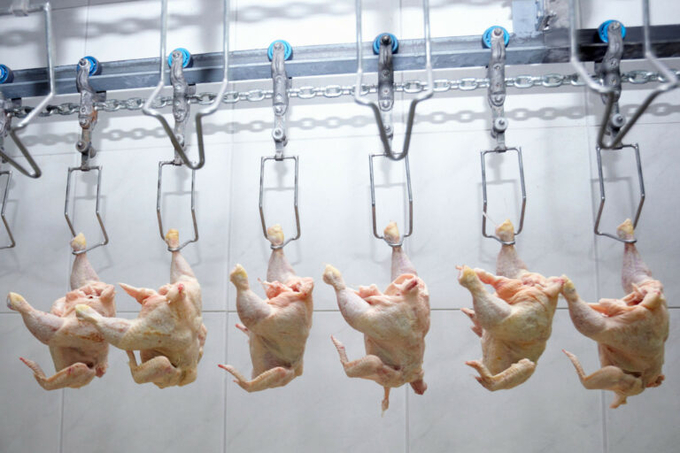June 17, 2025 | 22:31 GMT +7
June 17, 2025 | 22:31 GMT +7
Hotline: 0913.378.918
June 17, 2025 | 22:31 GMT +7
Hotline: 0913.378.918

GAP Resource, one of the leading Russian broiler meat manufacturers, is considering establishing poultry processing capacities in Africa and is primarily interested in the production of poultry products in the ready-to-eat and ready-to-cook segments. Photo: Canva.
The company could become the first Russian poultry meat manufacturer to run assets outside the post-Soviet space. Antonov unveiled that GAP Resource has already started work in this direction, though he refrained from providing additional details.
The company is primarily interested in the production of poultry products in the ready-to-eat and ready-to-cook segments. Among the most promising locations, Antonov mentioned South Africa and Angola. There is hope that GAP Resource can count on local funding.
“We have held very meaningful negotiations with Afreximbank as part of the working group of the Eurasia Economic Union’s Business Council and agreed that there are opportunities for financing this activity and that the [African] market needs teams mentally and physically capable of implementing these projects together with our African partners,” Antonov said.
However, Antonov admitted that the company had not yet drafted economically feasible projects in Africa. GAP Resource does, however, have a successful track record in exporting poultry to Egypt, Congo, Liberia, Ghana, Tanzania, Angola, Mozambique, and 10 other African countries over the past 2 years.
Last year, GAP Resource manufactured 1.045 million tonnes of poultry against 1 million tonnes in 2023, as estimated by the Russian National Union of Poultry Farmers. The company was ranked first in the list of the largest Russian poultry manufacturers, ahead of Cherkizovo Group, with 986,000 tonnes of poultry meat production in 2023.
GAP Resource’s exports stood at 145,000 tonnes last year, which is 15% up compared with 2022.
The company is eager to ramp up sales to foreign customers in the coming years. In September 2024, GAP Resource signed an agreement with the Russian leading logistics firm FESCO, aimed at expanding poultry product exports to China, Southeast Asian countries, India and the UAE. The parties will also establish cooperation to ensure reverse loading to make logistics costs more attractive.
“The result of the cooperation will be the development of optimal transport and logistics solutions based on FESCO’s key services and assets for the export of meat and poultry products to new markets in Asian countries,” FESCO said.
Under the deal, Russian poultry products are due to be shipped through the Russian Far East. As revealed by Antonov, this new route holds promise for the company to further boost exports. In particular, he added, GAP Resource was in negotiations to establish exports to Japan.
(Poultryworld)
![Turning wind and rain into action: [6] ‘Four on-the-spot’ disaster management software](https://t.ex-cdn.com/nongnghiepmoitruong.vn/608w/files/news/2025/06/17/e5a48259d6a262fc3bb3-nongnghiep-183800.jpg)
(VAN) By simply activating the scenario on the disaster management software, the relevant authorities immediately know how many households need to be evacuated, where to evacuate them to, and by what means of transportation…

(VAN) According to the Binh Thuan Department of Industry and Trade, in the first five months of 2025, Binh Thuan's dragon fruit export turnover increased by 20.65% compared to the same period last year.

(VAN) EU countries on Thursday gave final approval to new tariffs on fertilizer imports from Russia, a move aimed at cutting off revenue that could support Moscow’s war in Ukraine, despite concerns from European farmers.

(VAN) The working delegation from the Ministry of Agriculture and Environment conducted an important trip to the Netherlands to strengthen strategic partnerships and sustainable development in the agricultural sector.

(VAN) The letter ‘A Plea from the Ocean’ not only evokes emotion but also awakens the human conscience to the responsibility of protecting life on Earth.

(VAN) The Department of Agriculture in South Africa has announced the country’s first mass vaccination of poultry to prevent local birds from contracting avian influenza.

(VAN) Establishment of the Mekong Delta Regional Agricultural Linkage Center, aiming for a closed value chain, deep processing, trading platforms, and international market connectivity.